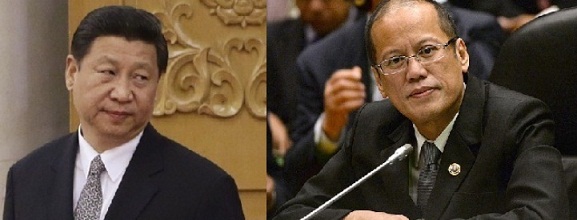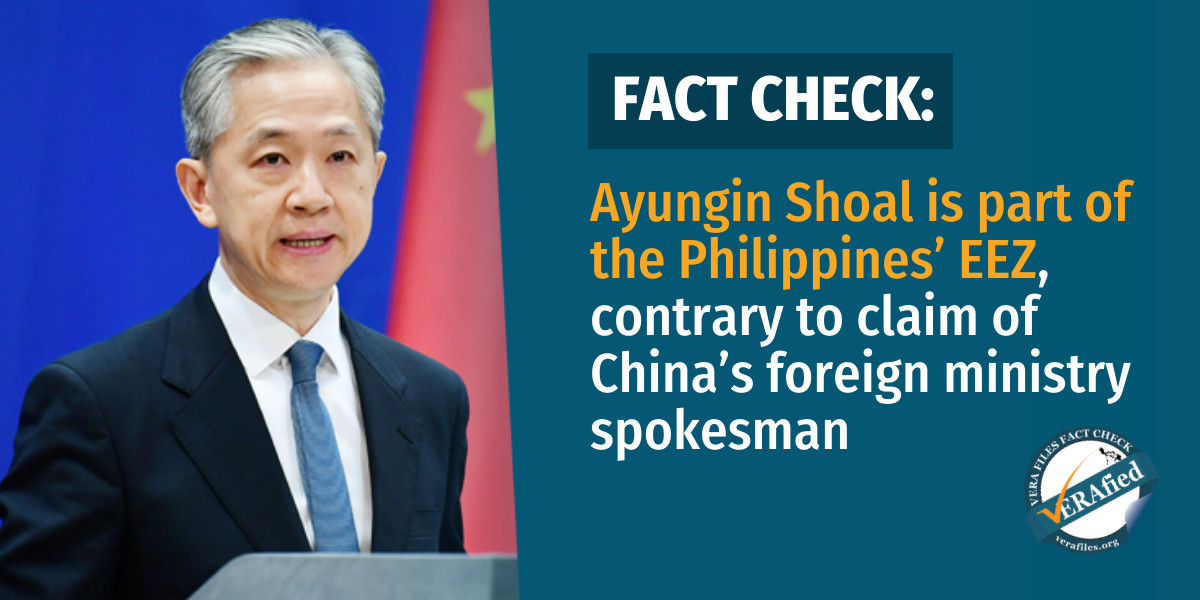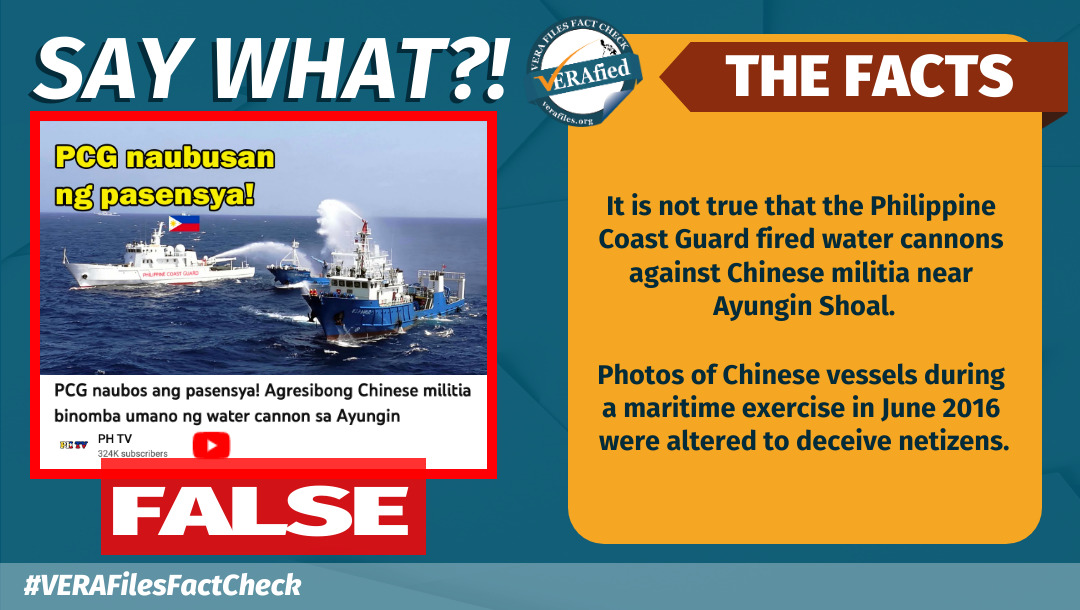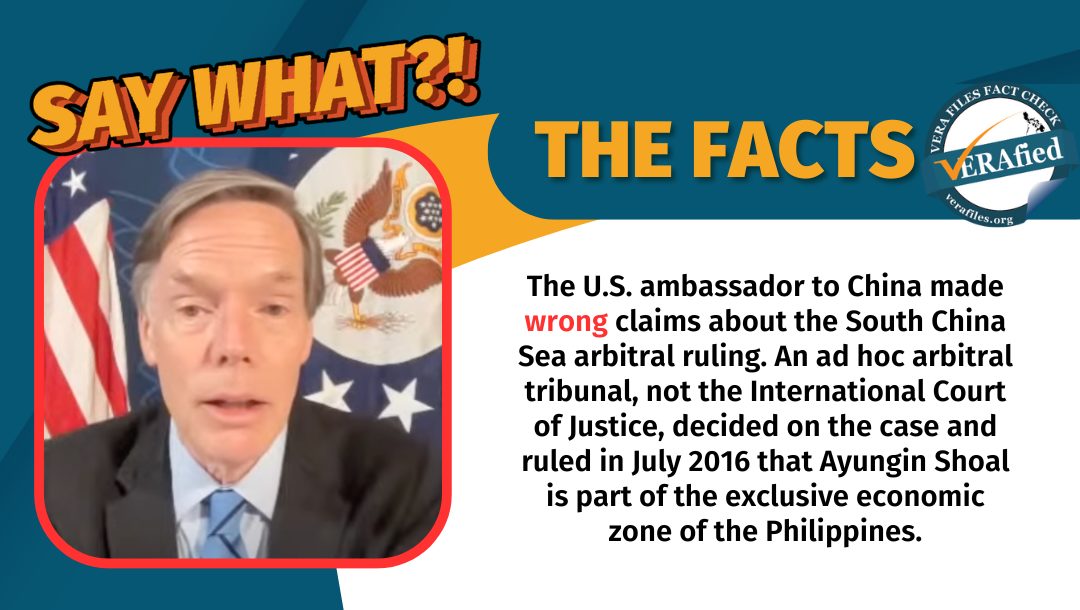
By ELLEN T. TORDESILLAS
NO ifs and buts about it: the Philippines and China are no longer friends.
That’s a decision that the Philippines made when it hauled China to the United Nations Arbitral Tribunal over the latter’s all -South -China -Sea-encompassing 9-dash line map. As former ambassador to the United Nations Lauro Baja said, “When we filed a case against China at the U.N. that was the end of diplomacy.”
The submission of the Memorial on the case today at the U.N. Court’s headquarters at The Hague further reinforced the hostility.
As a sovereign country, the Philippines has every right to choose who to be friends with and who to take on. The Aquino government has chosen to battle with China. It’s a move applauded by allies who are uncomfortable with the enormous strength of modern China but are hesitant to antagonize the world’s second largest economy.
The Philippines can bask in that momentary applause but at the end of the day it has only itself to rely on when push comes to shove in the conflict with China.
Chinese officials, intent to save relations with the Philippines, requested through emissaries to delay the filing of the Memorial. Brunei, one of the four claimants in the Association of Southeast Asian Nations, told Foreign Secretary Albert del Rosario last January that they are of the opinion that a delay in the submission of the Memorial would ease the tension in the region.
The same request was sent by China to President Aquino through a backchannel. “We don’t expect the Philippines to withdraw the suit because we understand that national pride is at stake. But we hope you can delay it, “ was the message from a ranking Chinese official.
Aquino and his advisers decided to reject China’s request.
Chinese Foreign Ministry Spokesman Hong Lei said Wednesday “China is unswerving in its resolve and determination to safeguard national sovereignty and territorial integrity. We hope that the Philippine side can be fully aware of the complexity and sensitivity of the South China Sea issue, return to the right track of resolving the dispute through negotiation and consultation as soon as possible, stop going any further down the wrong track so as to avoid further damage to bilateral relations.”
Now that the Philippines has decided to take the hardline position against China, the question is, what preparations is it taking to be ready for China’s retaliation.
History has shown that Chinese never let pass a hostile move against them. The retaliation may not be immediate but they hit back.
The Philippines has many vulnerable spots that China can choose to hit. Unlike Philippine leaders whose foreign affairs moves are aimed to the gallery, the Chinese are focused in their vision. They will not do things to hurt the Philippines that will also have an adverse effect on them. It is unlikely that they will send back Filipino workers in Hongkong because it will cause difficulties to the people of Hongkong. They will not cut their nose to spite their face.
The possible retaliation of China will be to occupy more islands in the contested areas.
For all intents and purposes, the Philippines has already lost Scarborough Shoal also known as Bajo de Masinloc and Panatag Shoal (Huangyan Island to the Chinese) .
With three ships permanently stationed in Scarborough Shoal, China is in control of the rock, 124 nautical miles from Zambales since April 8, 2012.
They have also been in control of Mischief Reef in the Spratlys since 1995.
A 1998 study by then Lieutenant Michael Studeman of the U.S. Navy showed that the Chinese occupied Mischief in retaliation to what it considered “betrayal” by the Philippines.
Studeman wrote:” China’s occupation of Mischief Reef was not a bolt from the blue; it was preceded by a chain of events that began with a falling-out with the Philippines over hydrocarbon exploration in the northeast region of the Spratlys.
“Joint development talks between China and the Philippines over gas-rich Reed Bank broke down in early 1994; in May, Manila decided to grant a six-month oil exploration permit to Alcorn Petroleum and Minerals.27 The Philippines was interested in collecting seismic data on the seabed southwest of Reed Bank. Manila hoped the contract would remain a secret, but news of the collaboration soon leaked. Beijing swiftly issued a statement reasserting its sovereignty over the area covered by the license and ignored Manila’s belated invitation to become a partner in the project. Manila back-pedaled on the diplomatic front for weeks, but the damage had been done. By secretly licensing an exploration effort the Philippines had appeared to engage in unilateral efforts to exploit the natural resources of the Spratlys.
“Stung by Manila’s ‘betrayal,’ China decided to advance eastward for better surveillance coverage of any Philippine-sponsored oil exploration. Mischief Reef is in the lower-middle section of the Alcorn concession; a presence there would also strengthen China’s hand were petroleum ever to be discovered in the area. The Chinese post on Mischief Reef was discovered by Filipino fishermen in February 1995, the advanced state of its buildings indicating that construction had begun in the fall of 1994, just a few months after Manila’s ‘faux pas.’ China had quietly advanced onto the reef because it believed physical occupation was the only method by which Chinese interests could be protected. Beijing’s own misstep was in not foreseeing that this characteristically ‘defensive’ response would be interpreted as offensive.
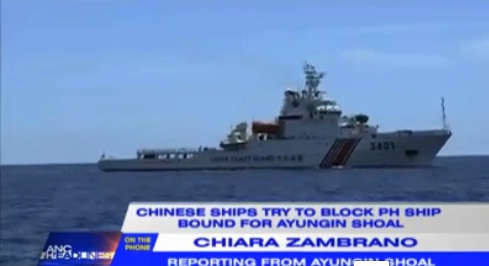 Mischief Reef is 21 nautical miles from Ayungin shoal also known as Second Thomas shoal (Ren’ai Reef to the Chinese), where a grounded BRP Sierra Madre serves as a Philippine Marines post. At least three Chinese ships are closely watching the activities in Ayungin shoal.
Mischief Reef is 21 nautical miles from Ayungin shoal also known as Second Thomas shoal (Ren’ai Reef to the Chinese), where a grounded BRP Sierra Madre serves as a Philippine Marines post. At least three Chinese ships are closely watching the activities in Ayungin shoal.
Philippine media reported jubilantly about how last week ships bringing supplies to the Marines in BRP Sierra Madre were able to get past the Chinese ships. However, it is obvious that the Chinese Coast Guard allowed them. And China can block the re-supply in the future if they want to.
Aquino and his advisers would do well to remember the words of American writer Lois McMaster Bujold: “When you choose an action, you choose the consequences of that action. When you desire a consequence you had damned well better take the action that would create it.”
